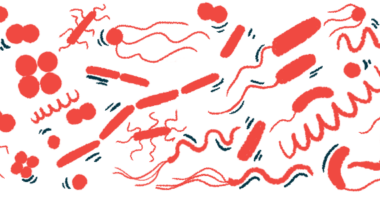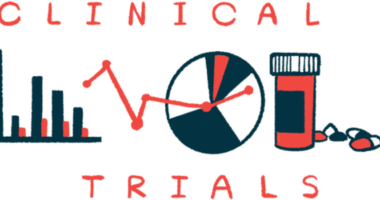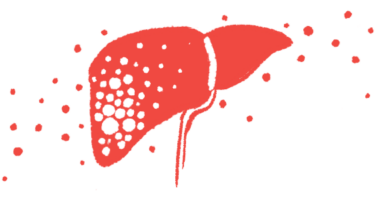Common myths about MASH and MASLD: What’s true, what’s not
Last updated Sept. 3, 2024, by Susie Strachan

There is a lot of misunderstanding about steatotic liver disease (SLD). Knowing the facts can help you get a quicker diagnosis, ensure you receive the right treatment, and help you to manage your condition more effectively.
SLD, previously known as fatty liver disease prior to a 2023 update in terminology, refers to a specific type of fat buildup that occurs in the liver.
Based on the previous name, some people may have believed that this type of liver disease only affects those who are overweight.
However, SLD can develop in anyone, regardless of age, weight, or lifestyle. If left untreated, the disease can progress to severe liver damage, which may include liver failure and liver cancer.
SLD includes two key disorders: one known as alcohol-associated liver disease (ALD) and the other called metabolic dysfunction-associated steatotic liver disease (MASLD). MASLD was previously known as nonalcoholic fatty liver disease, or NAFLD. This disease can progress to more serious liver inflammation and scarring, resulting in a more severe form of the condition called metabolic-associated steatohepatitis (MASH), previously known as nonalcoholic steatohepatitis (NASH).
Here are some common myths about liver disease and the truth behind each one.
Only heavy drinkers get liver disease
The facts: Moderate to heavy alcohol consumption can cause significant damage to your liver, potentially leading to liver disease.
However, SLD can also be caused by taking certain medications, being overweight, or having specific metabolic conditions. It also can happen for unknown reasons.
In fact, according to the American Liver Foundation, more than 100 million people in the U.S. are affected by some form of liver disease. And it’s estimated that 80 to 100 million adults in the U.S. have SLD. Many of them may not realize it.
If you think you may be drinking too much alcohol — or have alcohol use disorder — talk to your doctor about cutting back.
If you have SLD, it means you’re overweight
The facts: While being overweight or obese can increase your risk of developing SLD, it’s not the only factor that plays a role.
SLD can also occur in people who are a healthy weight. Lifestyle and other risk factors also can affect your liver’s health.
For example, your genetics may make you more susceptible. So can having a condition like type 2 diabetes, insulin resistance, or high levels of cholesterol.
Poor nutrition, such as eating a diet high in unhealthy fats and refined sugars, or drinking too much alcohol, can also lead to fat buildup in your liver.
Because these factors also can eventually cause steatotic liver disease, you can’t assume your liver is healthy solely based on your weight.
You will know you have SLD by its symptoms
The facts: In its early stages, steatotic liver disease may go unnoticed. Its symptoms are often vague or even not noticeable.
In addition, some SLD symptoms — such as upper abdominal pain, loss of appetite, and feeling tired and run-down — are similar to those caused by other health issues.
For many people, the first sign that something is wrong with their liver may be an abnormal result on a routine blood test, such as having elevated liver enzymes.
If you do experience early symptoms of SLD such as nausea, itchiness, dark-colored urine, or yellowing skin or in the whites of your eyes, contact your healthcare provider. Yellowing of the skin or around the eyes is known as jaundice.
MASH and MASLD are the same disease
The facts: MASH and MASLD are related but not the same.
MASLD comprises a range of liver conditions in which people who drink little or no alcohol have an accumulation of fat in the liver.
The primary causes of MASLD are often related to metabolic health problems such as obesity, insulin resistance, or type 2 diabetes.
MASH is a more severe form of MASLD. In addition to fat accumulation, there is inflammation and liver cell damage, which can lead to scarring (fibrosis) and in severe cases, liver cancer.
Thus, while all people with MASH have MASLD, not everyone with MASLD has MASH.
MASH and MASLD can’t be cured
The facts: There is the potential to reverse liver disease in the early stages.
While there is no specific medication available to treat every SLD, lifestyle changes can help reduce liver fat and inflammation and improve liver function. Such modifications include losing weight, eating a healthy diet, and being more physically active.
Speak with your healthcare provider about appropriate treatment for SLD. Early detection can lead to substantial improvements and, in some cases, reversal of liver damage.
Processed foods cause MASH and MASLD
The facts: Processed foods often contain high amounts of unhealthy fats, sugars, and additives, which can contribute to weight gain, high cholesterol, and high blood pressure. All these are risk factors for developing steatotic liver disease.
However, processed foods are not the only contributor to MASLD and MASH. Besides eating an unhealthy diet, other risk factors include being overweight, not getting enough physical activity, drinking alcohol, and taking certain medications.
Managing these risks, including cutting back on how much processed foods you eat and adopting a healthy diet, can improve the health of your liver and reduce your risk of developing SLD.
Health supplements can prevent liver disease
The facts: While certain health supplements may support liver health, they are not a cure for liver disease and cannot prevent or reverse damage.
Some supplements, such as milk thistle or turmeric, are often promoted for liver health, but their effectiveness in treating or reversing liver disease is not proven. Other supplements can actually harm your liver or might interfere with other prescribed medications you may be taking.
Consult your healthcare provider before taking any supplements, especially if you have liver disease.
Liver Disease News is strictly a news and information website about the disease. It does not provide medical advice, diagnosis or treatment. This content is not intended to be a substitute for professional medical advice, diagnosis, or treatment. Always seek the advice of your physician or other qualified health provider with any questions you may have regarding a medical condition. Never disregard professional medical advice or delay in seeking it because of something you have read on this website.
Recent Posts
- Maralixibat Phase 3 trial for cholestasis-related itch is enrolling
- Fielding my son’s new questions about his Alagille syndrome
- Gut bacteria is involved in systems that help regulate fat in liver: Study
- Robotic-assisted Kasai liver surgery may help biliary atresia outcomes
- ABI-4334 shows promise in hepatitis B Phase 1b trial: Data
Related articles





